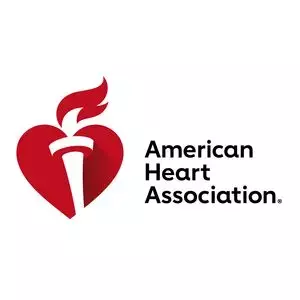- Home
- Medical news & Guidelines
- Anesthesiology
- Cardiology and CTVS
- Critical Care
- Dentistry
- Dermatology
- Diabetes and Endocrinology
- ENT
- Gastroenterology
- Medicine
- Nephrology
- Neurology
- Obstretics-Gynaecology
- Oncology
- Ophthalmology
- Orthopaedics
- Pediatrics-Neonatology
- Psychiatry
- Pulmonology
- Radiology
- Surgery
- Urology
- Laboratory Medicine
- Diet
- Nursing
- Paramedical
- Physiotherapy
- Health news
- Fact Check
- Bone Health Fact Check
- Brain Health Fact Check
- Cancer Related Fact Check
- Child Care Fact Check
- Dental and oral health fact check
- Diabetes and metabolic health fact check
- Diet and Nutrition Fact Check
- Eye and ENT Care Fact Check
- Fitness fact check
- Gut health fact check
- Heart health fact check
- Kidney health fact check
- Medical education fact check
- Men's health fact check
- Respiratory fact check
- Skin and hair care fact check
- Vaccine and Immunization fact check
- Women's health fact check
- AYUSH
- State News
- Andaman and Nicobar Islands
- Andhra Pradesh
- Arunachal Pradesh
- Assam
- Bihar
- Chandigarh
- Chattisgarh
- Dadra and Nagar Haveli
- Daman and Diu
- Delhi
- Goa
- Gujarat
- Haryana
- Himachal Pradesh
- Jammu & Kashmir
- Jharkhand
- Karnataka
- Kerala
- Ladakh
- Lakshadweep
- Madhya Pradesh
- Maharashtra
- Manipur
- Meghalaya
- Mizoram
- Nagaland
- Odisha
- Puducherry
- Punjab
- Rajasthan
- Sikkim
- Tamil Nadu
- Telangana
- Tripura
- Uttar Pradesh
- Uttrakhand
- West Bengal
- Medical Education
- Industry
Kawasaki disease symptoms in kids may be mistakenly linked to COVID-19

Coronavirus infection has usually a benign course in children therefore in kids serious inflammatory symptoms of Kawasaki disease may be mistakenly linked to Covid 19.
DALLAS: Recent reports of children experiencing Kawasaki disease, possibly tied to the COVID-19 pandemic, are raising concerns among patients and pediatricians.
Most children with COVID-19 are asymptomatic or exhibit only mild symptoms. However, in the past two months, first in Europe, and more recently in the U.S., a small number of children developed a more serious inflammatory syndrome with COVID-19, often leading to hospitalization and occasionally requiring intensive care.
COVID-19 infection leading to critical illness in children remains very infrequent. According to the leaders of the American Heart Association's Council on Lifelong Congenital Heart Disease and Heart Health in the Young (Young Hearts), a few patients display symptoms found in other pediatric inflammatory conditions, most notably Kawasaki disease. Kawasaki disease is a rare condition that presents with a fever above 102°F to 104°F for at least five days, swelling of the lymph nodes, inflammation, a rash and other symptoms.
Children with this new, possibly COVID-19-related syndrome may have some or all the features of Kawasaki disease. These children have a persistent fever, inflammation and evidence of single or multi-organ dysfunction (shock, cardiac, respiratory, renal, gastrointestinal or neurological disorder) and may or may not test positive for COVID-19.
"We want to reassure parents – this appears to be uncommon. While Kawasaki disease can damage the heart or blood vessels, the heart problems usually go away in five or six weeks, and most children fully recover," said Jane Newburger, M.D., M.P.H., FAHA, American Heart Association Young Hearts Council member, associate cardiologist-in-chief, academic affairs; medical director of the neurodevelopmental program; and director of the Kawasaki Program at Boston Children's Hospital; and Commonwealth Professor of Pediatrics at Harvard Medical School. "Rarely, but sometimes, the coronary artery damage persists. Because of this, Kawasaki disease is the most common cause of acquired heart disease in children in developed countries. Prompt treatment is critical to prevent significant heart problems."
Since some children are becoming very ill extremely quickly, children with these symptoms should be swiftly evaluated and cared for in hospitals with pediatric cardiac intensive care units, as needed. Because there is a small but increasing number of children with fever and evidence of inflammation who are not severely ill, all children with unexplained fever and elevated C- Reactive Protein (CRP) or white blood cell count should be carefully monitored.
In order to learn more, the American Heart Association's Young Hearts Council feels it is important for children to be enrolled, wherever possible, in COVID-19 research projects that include obtaining serum or plasma samples, DNA and RNA studies for biobanking. Clinical trials and data integration across existing and planned registries of children ill from COVID-19 are needed. The Council is adopting the case definition put forth by the Royal College of Paediatrics and Child Health..
Dr Kamal Kant Kohli-MBBS, DTCD- a chest specialist with more than 30 years of practice and a flair for writing clinical articles, Dr Kamal Kant Kohli joined Medical Dialogues as a Chief Editor of Medical News. Besides writing articles, as an editor, he proofreads and verifies all the medical content published on Medical Dialogues including those coming from journals, studies,medical conferences,guidelines etc. Email: drkohli@medicaldialogues.in. Contact no. 011-43720751


